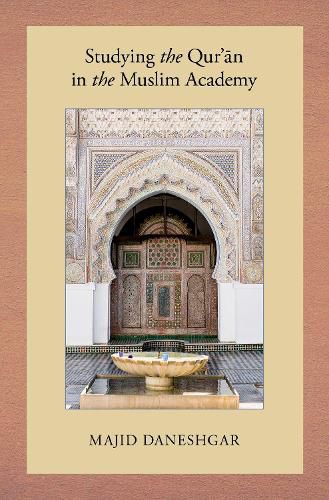Readings Newsletter
Become a Readings Member to make your shopping experience even easier.
Sign in or sign up for free!
You’re not far away from qualifying for FREE standard shipping within Australia
You’ve qualified for FREE standard shipping within Australia
The cart is loading…






Studying the Qur'an in the Muslim Academy examines what it is like to study and teach the Qur'an at academic institutions in the Muslim world, and how politics affect scholarly interpretations of the text. Guided by the author’s own journey as a student, university lecturer, and researcher in Iran, Malaysia, and New Zealand, this book provides vivid accounts of the complex academic politics he encountered. Majid Daneshgar describes the selective translation and editing of Edward Said’s classic work Orientalism into various Islamic languages, and the way Said’s work is weaponized to question the credibility of contemporary Western-produced scholarship in Islamic studies. Daneshgar also examines networks of journals, research centers, and universities in both Sunni and Shia contexts, and looks at examples of Quranic interpretation there. Ultimately, he offers a constructive program for enriching Islamic studies by fusing the best of Western theories with the best philological practices developed in Muslim academic contexts, aimed at encouraging respectful but critical engagement with the Qur'an.
$9.00 standard shipping within Australia
FREE standard shipping within Australia for orders over $100.00
Express & International shipping calculated at checkout
Studying the Qur'an in the Muslim Academy examines what it is like to study and teach the Qur'an at academic institutions in the Muslim world, and how politics affect scholarly interpretations of the text. Guided by the author’s own journey as a student, university lecturer, and researcher in Iran, Malaysia, and New Zealand, this book provides vivid accounts of the complex academic politics he encountered. Majid Daneshgar describes the selective translation and editing of Edward Said’s classic work Orientalism into various Islamic languages, and the way Said’s work is weaponized to question the credibility of contemporary Western-produced scholarship in Islamic studies. Daneshgar also examines networks of journals, research centers, and universities in both Sunni and Shia contexts, and looks at examples of Quranic interpretation there. Ultimately, he offers a constructive program for enriching Islamic studies by fusing the best of Western theories with the best philological practices developed in Muslim academic contexts, aimed at encouraging respectful but critical engagement with the Qur'an.